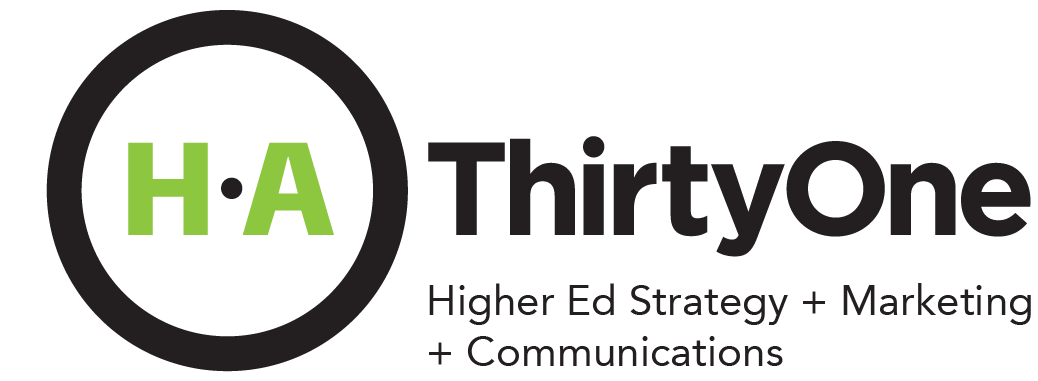When Miami University Vice President and Chief Communications and Marketing Officer Jaime Hunt tweeted, “a troubling # of colleagues across the US are leaving higher ed,” the responses were quick and abundant.
Current and former higher ed colleagues weighed in on causes Hunt mentioned including job stress, flexible work, and bare bones staffing. At HA ThirtyOne, Hunt’s tweet spawned discussions about the lure of double-digit growth in communications and marketing jobs outside higher ed, although education is itself in the top rising job fields.
Just months after higher ed institutions across the US ordered employees to work from home during the COVID-19 pandemic, new opportunities began to emerge in other fields. A steadily growing number of non-higher ed employers posted job descriptions aimed to market, engage, and communicate more effectively with their audiences, which they wanted to expand.
Among the job types that show the most growth, according to a LinkedIn analysis for 2021, are business development and sales, workplace diversity, digital marketing, digital content creation, professional and personal coaching, and user experience. Each of these growing fields is closely related to higher ed marketing.
That lure has proved impossible to ignore for many former higher ed professionals, myself included.
I had not expected to join the exodus from higher education. My benefits and salary were better than any previous job I held. I had gained technical expertise, plus extensive experience in communications and marketing, and developed eight years of institutional knowledge. So why did I leave? I was no longer doing what I really wanted to do.
Instead, I chose to explore other options, a quest that ironically, but fittingly, has led me back to writing about higher education. During my time as an undergrad and a master’s student, I learned to hone my skills for analysis and expression. Perhaps the most enduring value from my years in higher education is that I am still in the field.
So, despite the uptick of flexible work in other fields and the pandemic’s toll on the educational work force, how can higher ed attract and retain enough experienced professionals to calm the concerns Jaime Hunt expressed in her tweet?
Several of her responders tweeted suggestions that include promoting career and salary transparency, truly embracing flexibility and innovation for employees, properly funding current roles and open roles, and rewarding staffers doing the work of multiple people with raises outside the standard merit system.
Are you a current or former higher ed professional? We would love to get your perspective on this timely and important issue. Join the conversation!
Angie Vicars is a writer, editor, producer, and dry wit deployer. Her eight-plus years in higher ed, spent at a state flagship, sharpened her brand and communications marketing senses and introduced her to content strategy. Wherever she goes, Vicars builds useful, usable content for a variety of audiences.
Categories
- Branding
- Communications
- Creative Development
- Integrated Marketing
- Leadership
- Marketing
- Planning
- Professional Development

